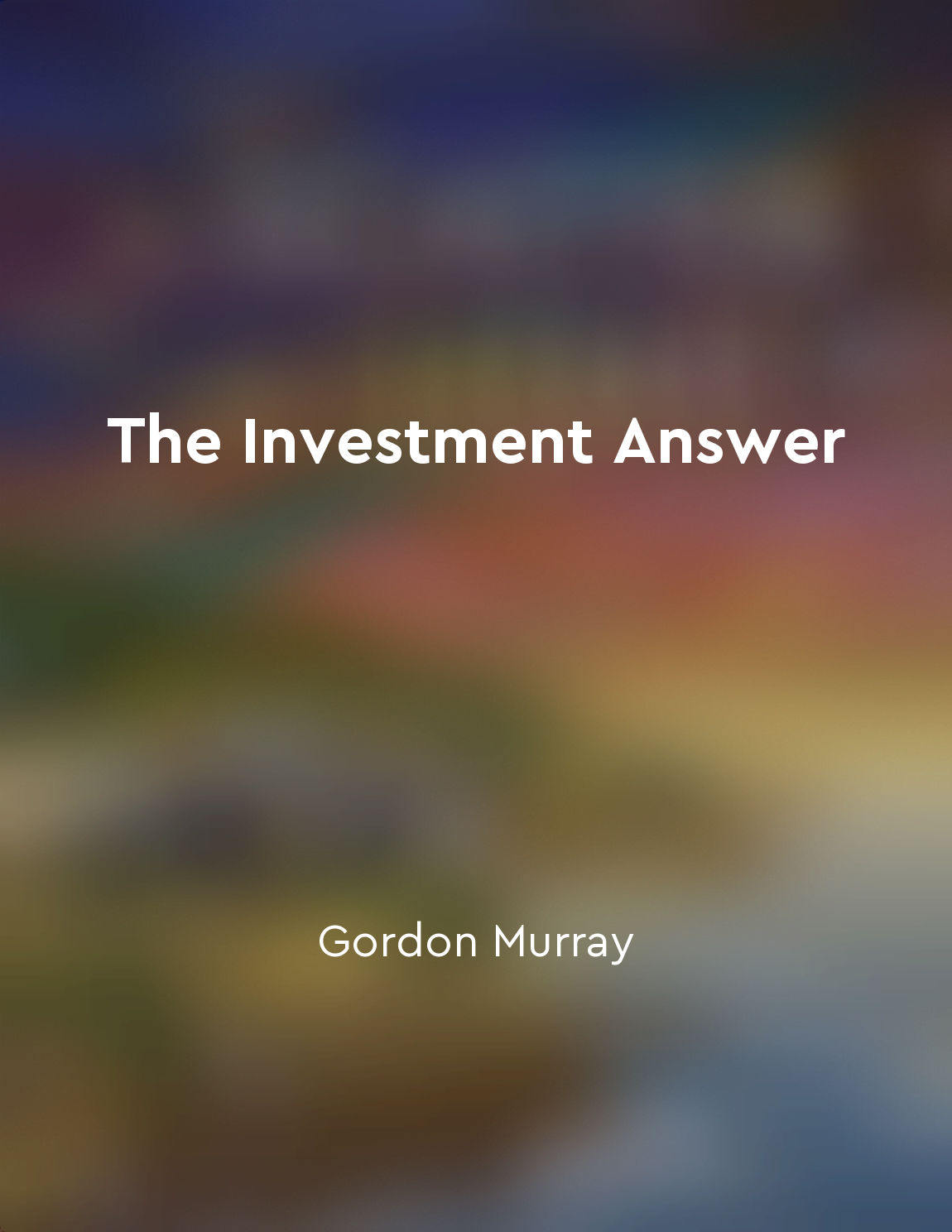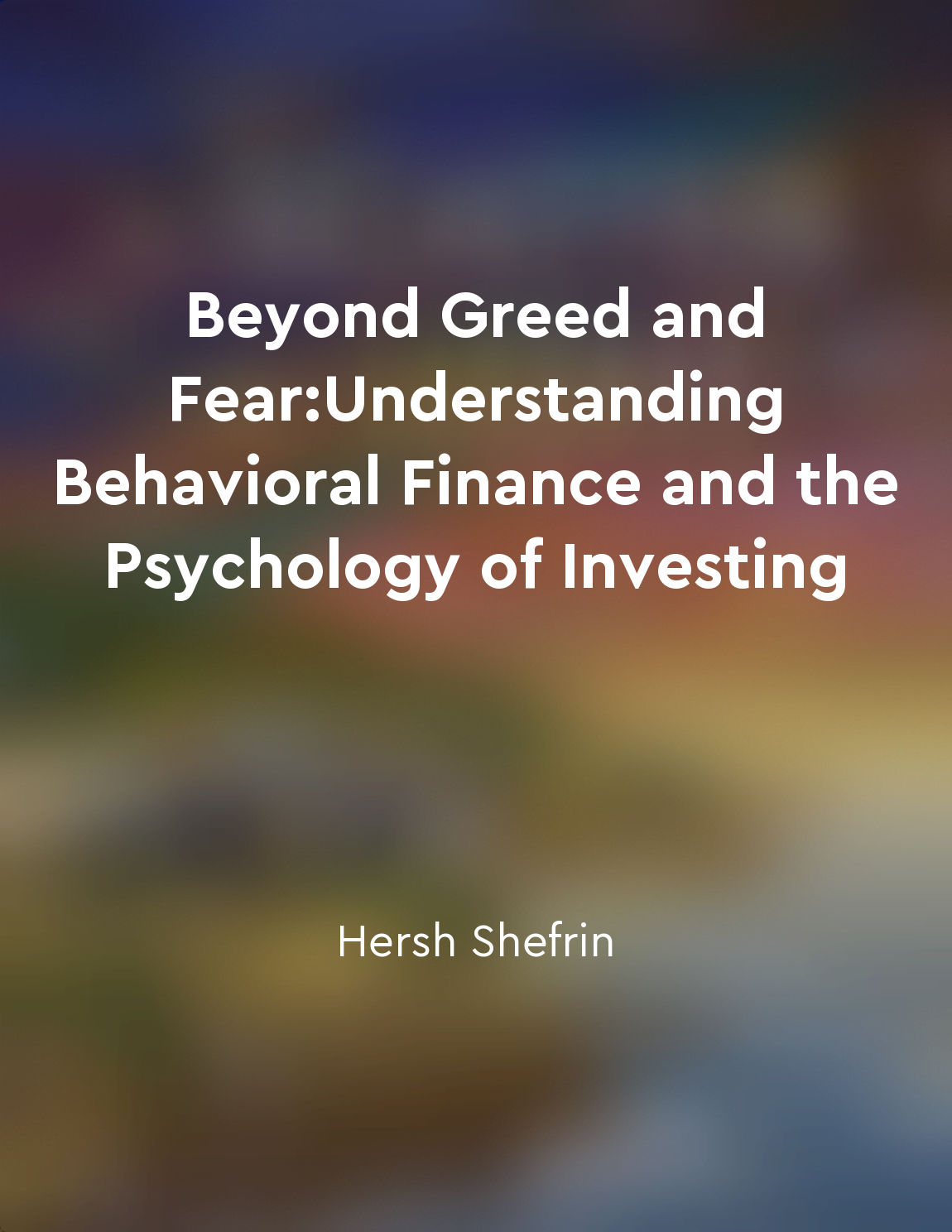Overconfidence can lead to poor investment outcomes from "summary" of Beyond Greed and Fear:Understanding Behavioral Finance and the Psychology of Investing by Hersh Shefrin
Overconfidence is a common behavioral bias that plagues many investors. It refers to the tendency for individuals to overestimate their abilities, knowledge, and skills, particularly when it comes to making investment decisions. This overconfidence can lead investors to believe they have an edge in the market, causing them to take on excessive risk or make rash decisions without conducting thorough research or analysis. When investors are overconfident, they may trade more frequently than necessary, incur higher transaction costs, and deviate from their long-term investment strategies. This can result in poor investment outcomes, as they may buy high and sell low, chase hot stocks, or fail to adequately diversify their portfolios. In essence, overconfidence can lead investors to make suboptimal decisions that ultimately harm their financial well-being. In addition, overconfidence can also lead investors to ignore valuable information or dismiss contrarian viewpoints that challenge their beliefs. This can create blind spots and prevent them from considering alternative perspectives that could potentially improve their investment decisions. By being overly confident in their own judgments, investors may miss out on valuable opportunities or fail to mitigate potential risks in their portfolios. Moreover, overconfidence can be exacerbated by the tendency for individuals to seek out information that confirms their existing beliefs while ignoring or discounting information that contradicts them. This confirmation bias can reinforce overconfidence and lead investors to make decisions based on faulty or incomplete information. As a result, they may fail to fully assess the risks and rewards of their investment choices, leading to subpar performance and missed opportunities for wealth accumulation.- It is important for investors to be aware of the dangers of overconfidence and actively work to mitigate its impact on their decision-making process. By remaining humble, receptive to feedback, and open to diverse perspectives, investors can improve their ability to make sound investment decisions that align with their long-term financial goals. By acknowledging the limitations of their own knowledge and expertise, investors can avoid the pitfalls of overconfidence and strive for better outcomes in the unpredictable world of investing.
Similar Posts
Learn to manage debt effectively
Managing debt effectively requires a deep understanding of how debt works and its potential consequences. It is crucial to be a...
Ignoring distractions can enhance our focus and attention
In our fast-paced world filled with constant distractions, it can be challenging to maintain our focus and attention on the tas...

Financial success is a result of habits, not luck
Financial success is a result of habits, not luck. This idea underscores the importance of consistent behaviors and actions in ...
International financial regulation aims to ensure market stability
In the realm of international finance, the primary goal of financial regulation is to maintain stability in the global market. ...
Expectations determine market outcomes
The driving force behind market outcomes is the collective expectations of market participants. These expectations are influenc...
Multitasking can increase the likelihood of mistakes
In the modern world, we often pride ourselves on our ability to multitask. We believe that by juggling multiple tasks at once, ...
Technical analysis is not a reliable strategy
Technical analysis, the practice of using historical price and volume data to predict future price movements, has long been a p...
A small group of outsiders gamble on the market’s demise
A small group of outsiders, people whom the market had not yet touched, decided to place a bet on the market's collapse. They w...

Always be prepared for a market downturn
As an investor, it is essential to anticipate and prepare for the inevitable market downturns that occur in the stock market. T...

Be wary of hot investment tips
Many investors are constantly on the lookout for the next big investment opportunity, hoping to strike it rich with a hot tip. ...


